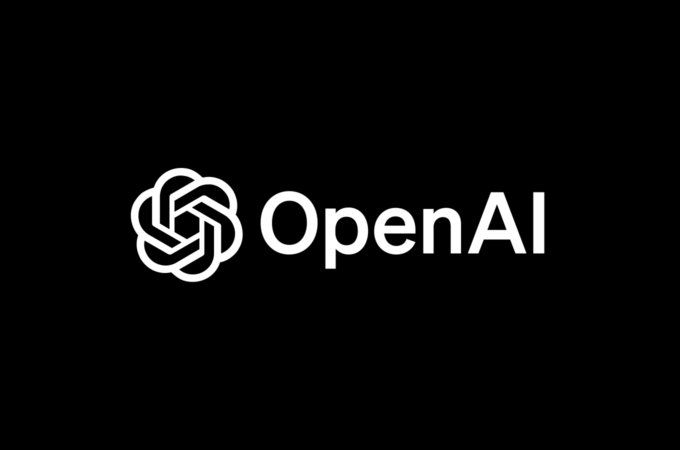
AI-Fueled Solutions for FinTech Industry You Should Be Aware of
Artificial intelligence is no longer an invention of science fiction writers. This technology covers more and more industries every year, making them more productive and technologically advanced. And the FinTech industry is no exception. For example, its global AI in the Fintech market is expected to reach $26.67 billion by 2026.
This rapid growth is due to the huge variety of different AI solutions in the Fintech industry. Today in this article, we will analyze the most famous examples of AI-fueled FinTech solutions, talk about the industry’s pressing problems, and how various famous AI solutions fix them. Without further ado, let’s get started.
Problem #1. Credit Decisions
Credit cards are a thing that almost everyone has in their wallet. Recent studies have shown that 77% of bank customers pay with a debit or credit card. However, the ease of paying for purchases is not the only reason for the huge popularity of credit cards.
The loan opens the door to a new source of financing that can be spent on renting an apartment, making high-value purchases, and so on. However, the process of analyzing a client’s credit history and approving a loan by a bank employee is already outdated and routine.
There are already various solutions on the market that help banks make smarter thanks to artificial intelligence algorithms. If you have an idea for an invention, there are several steps you’ll have to take to get the ball rolling. Unless you can produce the prototype at home, you’ll have to find companies like InventHelp to assist you with this step.
Zestfinance
ZestFinance is a globally renowned Los Angeles-based company that has created a Zest Automated Machine Learning platform. This platform is based on AI algorithms that greatly simplify the process of analyzing borrowers. At the same time, during this process, only a minimum of credit information is needed. At their core, the algorithms analyze a huge variety of data points, which allows lenders to assess bank customers who will take out a loan more accurately.

Problem #2. Risk Management
There is nothing more important in the financial industry than time because if you waste time, money floats away with it. Correct business decisions and accurate forecasts directly affect the success of the business.
It has long been no secret that many financial markets are starting to use machine learning algorithms to create predictions and models. In simple terms, financial experts feed the algorithms with already known data, and the algorithm, analyzing them, gives out future trends. This approach can significantly reduce the risk of making wrong decisions and at the same time reduce labor costs.
Kensho
Kensho is a Massachusetts-based company that provides AI power to a variety of large companies such as Bank of America, S&P Global, and more. A distinctive feature of Kensho is that the company offers various analytical results and forecasts using cloud computing and natural language processing (NLP). Simply put, the customer will receive a detailed answer to a complex financial issue in English.

Problem #3. Quantitative Trading
First, let’s get down to the basics and figure out what it is. Quantitative trading is a process in which gigantic data sets are used in order to identify various patterns that are useful in making various financial transactions. The main advantage is that using computers and artificial intelligence algorithms, the results can be obtained much faster, and they will be many times more accurate than the results from ordinary analysts. The entire process is automated, which saves time and money.
AlphaSense
AlphaSense, a New York-based company, is a search giant that uses artificial intelligence algorithms in its arsenal. Her portfolio includes many successful service cases for various Fortune 500 companies.
To describe the whole process in simple terms, the company uses a platform of the same name that processes natural language in order to analyze various search queries, research, news, and other sources of information. This process helps to identify various fluctuations in the market situation, new trends, and much more.

Problem #4. Personalized Banking
Old-fashioned banking is already gradually disappearing into oblivion, as every year it becomes more difficult for it to meet the needs of a technically advanced audience. For example, one of the tendencies has become the need of clients for various tools for managing accounts in real-time and getting support during various operations. And according to the research results, such clients are 54%.
In such situations, artificial intelligence comes to the rescue again. The most famous case is AI chatbots that, thanks to algorithms, can generate personalized recommendations for various financial transactions based on the user’s past requests.
Kasisto
Kasisto, also based in New York, has created its own AI-powered conversational platform called KAI. The main goal of this platform is to provide the highest quality service to bank customers. This goal is achieved through the use of AI-powered chatbots. The introduction of such bots in, for example, customer support will significantly reduce the number of call centers and transfer some of the tasks to customer self-service.

Problem #5. Fraud Detection
Every minute there are a huge number of transactions in the world, and all these transactions must be not only fast but also secure. In recent years, the issue of cybersecurity is especially acute. As a result, the industry is forced to turn to the power of artificial intelligence for maximum security. After all, for every FinTech enterprise, the security of customer transactions and other financial operations is everything: reputation, constantly growing customer base, and customer confidence. Without good cybersecurity, all of this can be lost in a moment. That’s why every company that is thinking about FinTech app development should take care of cybersecurity.
Shape Security
The California company Shape Security has earned the trust of many US banks that are leaders in the banking services market. The main goal of Shape Security is to prevent and protect against credit fraud, credential stuffing, scraping, gift card hacking, and much more. And the main assistant in this mission is machine learning algorithms.
A free ai content detector tool can analyze millions of transactions, which helps them better recognize the transactions of real people and identify transactions made by fraudulent bots from this stream. In addition, Shape Security has its own Blackfish network designed to make it easier to identify compromised login credentials.

Wrapping Up
As you can see, artificial intelligence solves almost every major problem in the FinTech industry. And despite the fact that not all banks have yet adopted artificial intelligence technologies in their work processes, there are more and more of them every year. After all, who knows what problem will arise in the near future? Artificial intelligence allows you to be ready for any challenge.
Author’s bio:

Vitaly Kuprenko is a technical writer at Cleveroad, a mobile and web app development company in Ukraine. He enjoys writing about tech innovations and digital ways to boost businesses.





